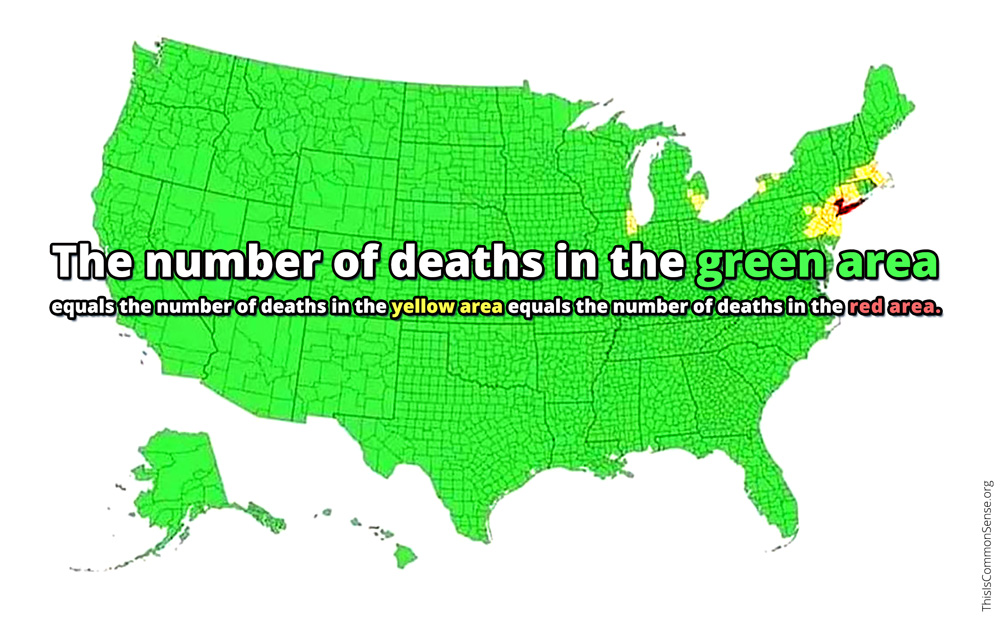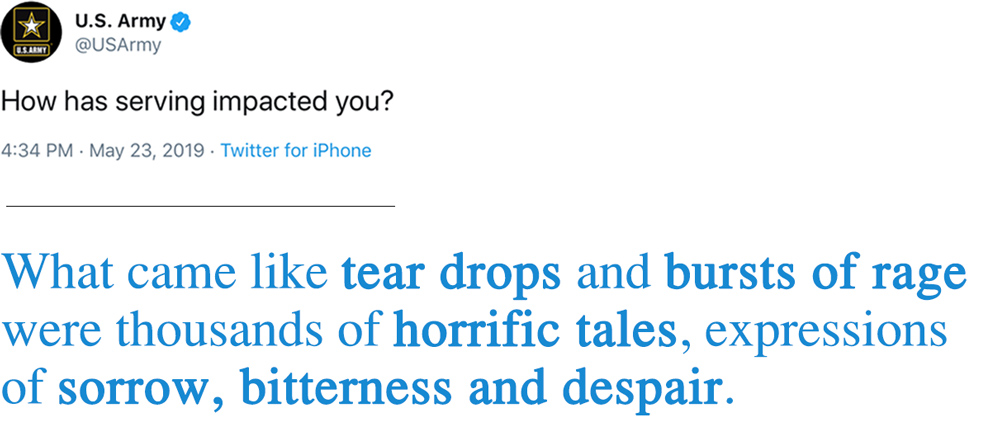Science, my lad, has been built upon many errors; but they are errors which it was good to fall into, for they led to the truth.
Jules Verne, Journey to the Center of the Earth (1864), Ch. XXXI: Preparations for a voyage of discovery.
Jules Verne


Science, my lad, has been built upon many errors; but they are errors which it was good to fall into, for they led to the truth.
Jules Verne, Journey to the Center of the Earth (1864), Ch. XXXI: Preparations for a voyage of discovery.

While reading an article in The Hill, about the loss of life that the lockdowns will cause — “millions of years of life” — I saw news anchor Judy Woodruff, on PBS News Hour, put on a dour face to intone the latest U.S. coronavirus death count: over 98,000.
But the United States is not just one unit. The United States are … very different. Fifty different. Most states have had few coronavirus deaths. Indeed, the map of mortality shows only a few hot spots, with New York City the worst.
Why? One key factor appears to be population density, particularly housing density and living quarters crowding. Lots of that goes on in New York City — and, PBS tells us, on Navaho lands.
Yet not all crowded conditions are as worrisome as once thought. Many were much exercised about Florida’s Spring Break beachgoers, but no major outbreaks occurred there.
This may be the result of the virus not being spread as experts initially thought: by asymptomatic carriers — as “A study on infectivity of asymptomatic SARS-CoV‑2 carriers” indicates.
Japan’s prime minister, Shinzō Abe, has withdrawn the nation’s state of emergency … with less than 900 dead. Back in the U.S., the states are responsible for the lockdowns, but President Trump urges an end to them, and the other day even Dr. Fauci acknowledged that lockdowns also kill.
Emile Phaneuf, writing at FEE.org, makes clear what has been foggy in popular discourse: it’s not “lives versus ‘the economy’” but “lives versus lives.” Mr. Phaneuf explains the economic logic of better policy regarding contagions.
Will our “leaders” listen in time for Round Two of the virus expected in the Fall?
This is Common Sense. I’m Paul Jacob.
—
See all recent commentary
(simplified and organized)

John Milton, Areopagitica; A speech of Mr. John Milton for the Liberty of Unlicenc’d Printing, to the Parlament of England (1644).
Though all the winds of doctrine were let loose to play upon the earth, so Truth be in the field, we do injuriously, by licensing and prohibiting, to misdoubt her strength. Let her and Falsehood grapple; who ever knew Truth put to the worse, in a free and open encounter?

Last year, when the public relations wing of the U.S. Army asked, on Twitter, “How has serving impacted you?” the bulk of the responses were not what was hoped for.
What came like tear drops and bursts of rage were thousands of horrific tales, expressions of sorrow, bitterness and despair.
No doubt the intention was to elicit, if not patriotic uplift, at least stories of learning, moral growth, centeredness, and personal victory out of sacrifice and suffering. Almost certainly the Army wanted what the promoters of “national service” now want.
The outcome was far messier.
Now, the Army handled the Twitterflak very well, with a tweet thanking people for their expressions. But a response by Mike Schmidt (@MikeSchmidt69) was probably as upbeat as could be expected, given the ‘writing on the wall’— er, Twitterfeed: “Some say this thread back-fired but this is just the thread that is needed each [M]emorial [D]ay so we remember the sacrifices military members and their families make and how we as a country need to understand the true cost of service and improve our support.”
Most of the tweets I read were decidedly not upbeat. The anger and pain over battle deaths, wounds, PTSD, mental illness, suicides, and so much indifference to it — it was deep and wide … and heartbreaking.
And needs to change NOW.
‘War is hell.’ In the defense of freedom, in self-defense, the brave soldier and general are honorable. But that honor is informed by the reticence that comes from actual knowledge of war’s true costs.
Maybe this Memorial Day President Trump and the Congress can also agree to review the use of military manpower around the world, looking to need to memorialize as few Americans as possible in the future.
In fact, that sort of public policy debate is for all of us holding the hot dogs.
This is Common Sense. I’m Paul Jacob.
—
See all recent commentary
(simplified and organized)

May 25, 1818, the Swiss historian and academic Jacob Burckhardt was born. Burckhardt’s best-known work is The Civilization of the Renaissance in Italy (1860), but is remembered here as the author of Reflections on History (1905).
Burckhardt died on August 8, 1897.

Liberty may be maimed, but not killed; reason may be bent, but not broken.
George Santayana, Egotism in German Philosophy, 1915.